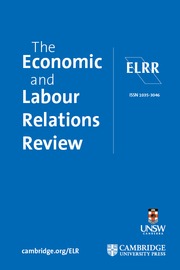
Lo más reciente
The objective of this paper is to analyse the impact of skill mismatch on labour turnover,
unemployment, and informality, in the case of Colombia. We study Colombia because it is a
developing country with one of the highest levels of unemployment and informality in Latin
America, along with very restrictive institutions, such as the minimum wage. We found that skill
mismatch can explain the high turnover of workers in the Colombian labour market, evident in the
increase in hirings and also in separations. Additionally, we find a positive significant effect of skill
mismatch on the levels of informality, but no significant effect on unemployment. This evidence
remains even once we consider the role of labour market institutions such as minimum wage and
non-wage labour costs.
